The human body is fascinating. From the top of the head all the way down to the tip of the toes, our bodies are a unique system made up of veins, bones, and organs, all wrapped up in the biggest organ — the skin.
You may already know that human bodies have 206 bones or that babies in utero have fingernails, but here are some fun facts about the human body that may surprise you.
To compile this list, 24/7Tempo reviewed health journals and fact-checked information with medical journals and websites including the Harvard Health Review. (If you are interested in learning more about the human body, check out 10 things to know about disability in America.)
1. Music affects your heartbeat

There is a reason your spin class plays loud, upbeat music: Music affects your heartbeat. Listening to upbeat music can have cardiovascular benefits and can help people work out longer and with more intensity, just like calming music can lower your heartbeat and put you in a relaxed state. But it’s not just listening that does the trick; creating music has the same effect as listening. Plus, listening to music releases dopamine, a brain chemical that facilitates focus.
2. You are taller in the morning

The human body is 1 centimeter taller in the morning than in the evening. The reason is related to cartilage. During the day, the cartilage in the knees and spine compress due to daily activities and gravity. But at night, lying in bed, the cartilage is able to relax and decompress, so when you wake up, you are actually a bit taller.
3. Your arm span is your height

When you stand tall and stretch your arms out, the distance between the fingertip on one side and the fingertip on the other side is your height. This body ratio, sometimes referred to as wingspan, was first introduced by an early Roman architect, Vitruvius, in 15 B.C. Later, Leonardo da Vinci’s drawing of “Vitruvian Man” from 1492 showed a visual representation of the concept. The ratio is thought to be universal but with a little wiggle room. Try it yourself and see if your height is the same as your wingspan.
4. Laughter is contagious

Do you ever wonder why you laugh so much when you are with friends and loved ones? Scientists have studied laughter and determined that people are 30% more likely to laugh when they are in the company of others. Neuroscientists have long studied the brain and how it lights up when people are with others and when alone. The data shows that people mirror each other’s body movements and facial expressions when interacting. Seeing others laugh makes people nearby laugh even if they didn’t hear the joke or know what everyone is laughing at. Laughing releases endorphins, those feel-good brain chemicals, so next time you are feeling down, spend time with friends being goofy or watching comedies because laughing together is a natural mood lifter.
5. Humans have the same number of hairs as a chimpanzee
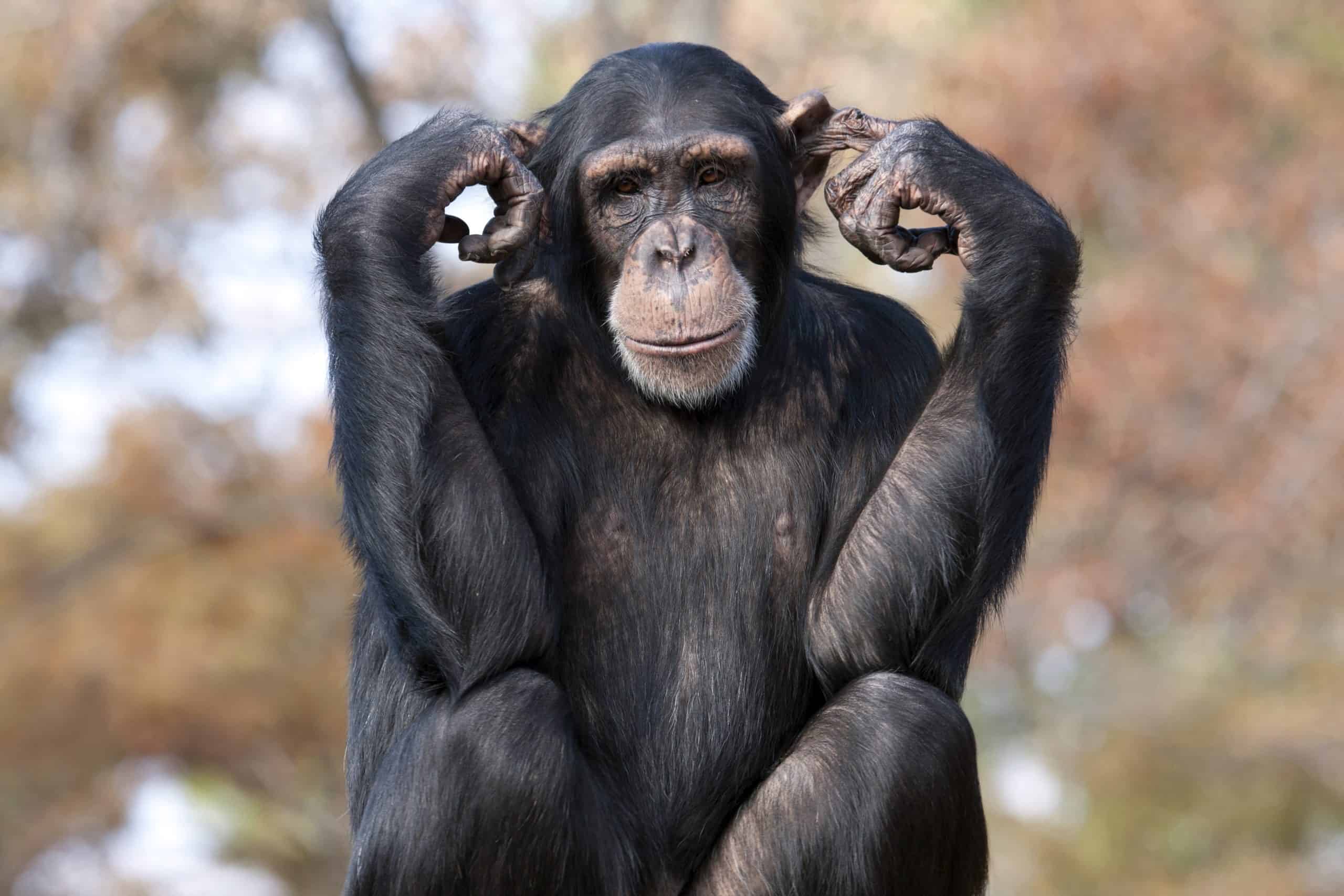
Humans have hair all over their bodies except the palms of the hands and soles of the feet. Surprisingly, humans have the same amount of hair as chimpanzees, but human hair is much finer than the coarse hair of a chimpanzee. Scientists explain it as an evolutionary trait. As humans evolved, the body hair became thinner, possibly due to living in a warmer climate and possibly due to disease. Body hair became dirty and was the perfect place for parasites and bacteria to hide. The hair on the head most likely stayed as a way to protect the head from the sun or, as Charles Darwin hypothesized, to attract a mate.
6. Miles of blood vessels
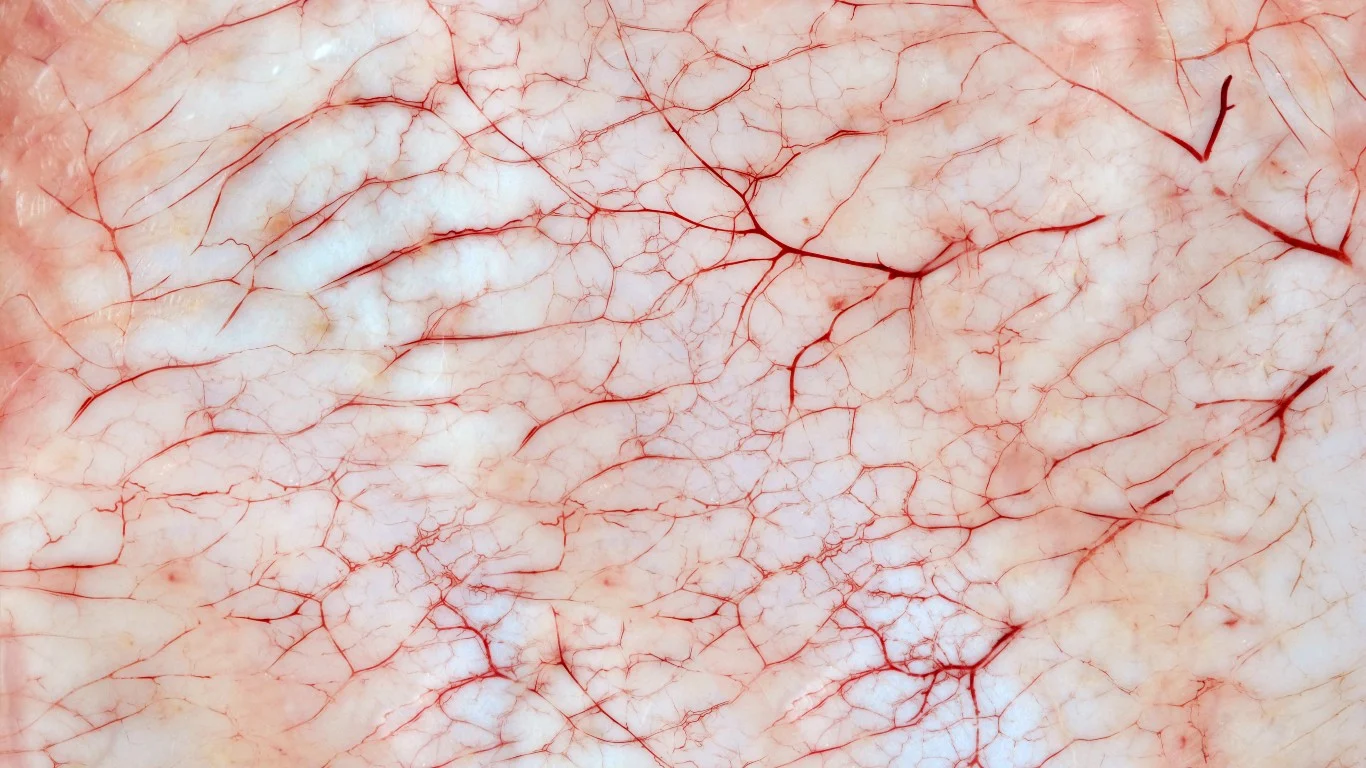
Human bodies rely on blood vessels to pump blood and nutrients throughout the body. An adult has a whopping 60,000 miles of blood vessels, long enough to make it twice around the world.
7. Your teeth are as strong as a shark’s

Great White Shark, photographed from the safety of a cage in South Africa
Taking care of your teeth is important; without teeth, humans wouldn’t be able to chew food and would lack important vitamins and minerals in the diet. Human teeth are made of dentin and covered in enamel, making them strong. A fun fact about human teeth is they are just as strong as shark teeth. The key difference between human teeth and shark teeth comes down to shape. Human teeth are strong but quite dull, while shark teeth are strong and sharp.
8. The brain is made of 60% fat
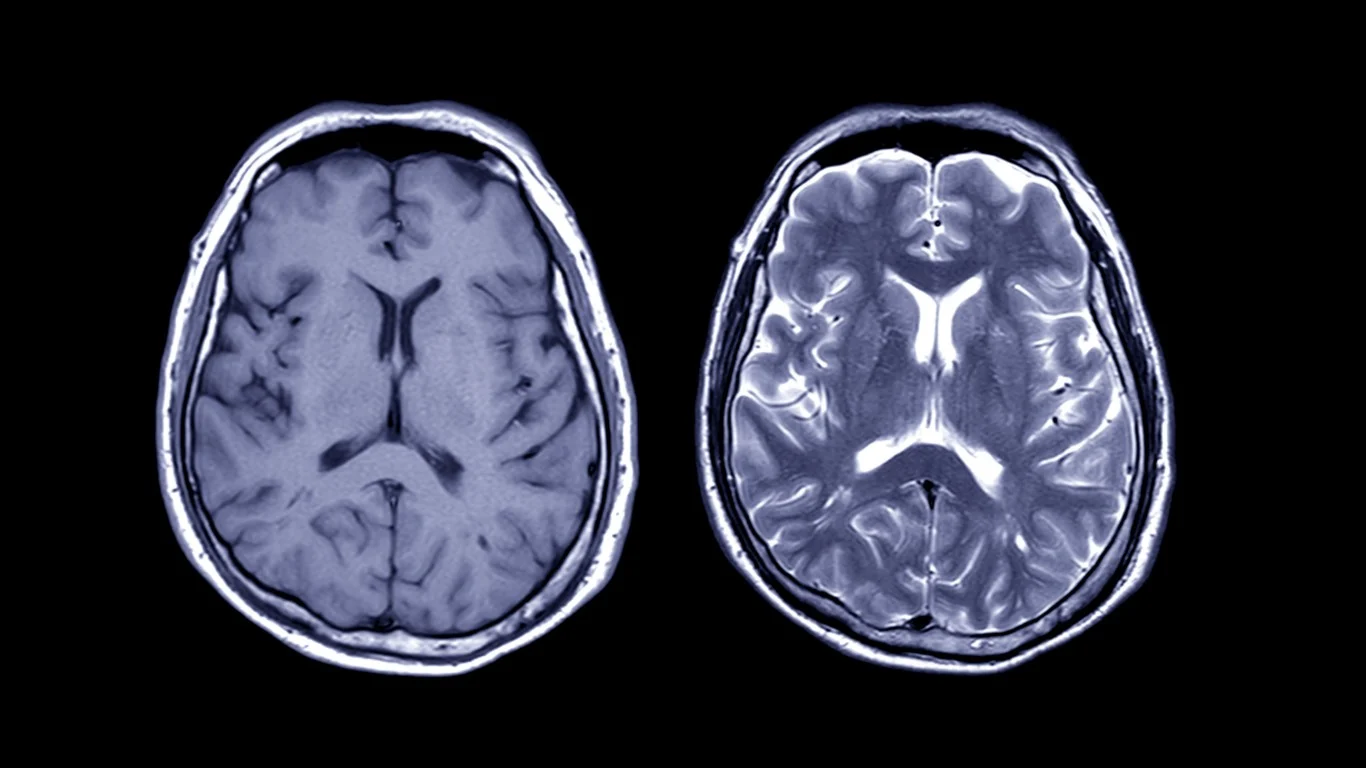
The human brain is the computer system of the body. It controls thoughts, feelings, and how they are processed. An adult brain weighs 3 pounds and is made up of 60% fat. This fat is important to keeping the brain properly functioning. Eating foods high in omegas and healthy fats helps your brain stay strong. Plus, regular exercise affects not only the body but the brain, too. So go for a walk, then eat some salmon for optimal brain health.
9. The stomach can stretch
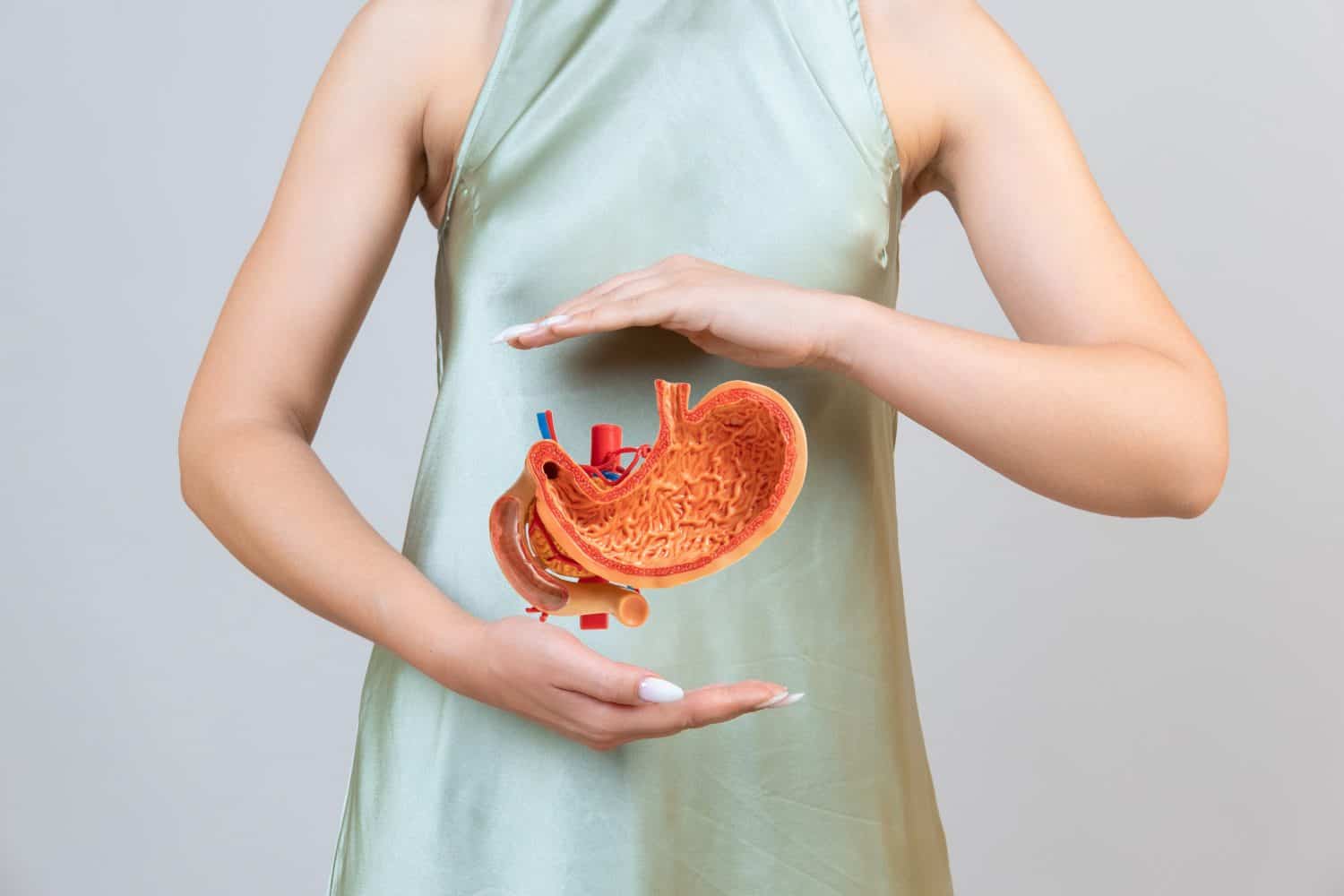
Have you ever eaten so much that you feel full? You may feel like your stomach will explode if you eat another bite, but the stomach has an amazing ability to stretch to accommodate more food. The stomach can stretch and hold close to 4 liters of food at a time. When people eat a lot, the stomach stretches, and then, as food digests, it empties out. If a person consistently overeats, the stomach will stretch out repeatedly and may become bigger permanently. However, it is impossible to make the stomach smaller. But you can try eating small meals during the day so the stomach stretches less. A trick to feeling full with less food is to drink a glass of water before eating.
10. The mouth produces about 1 liter of saliva each day
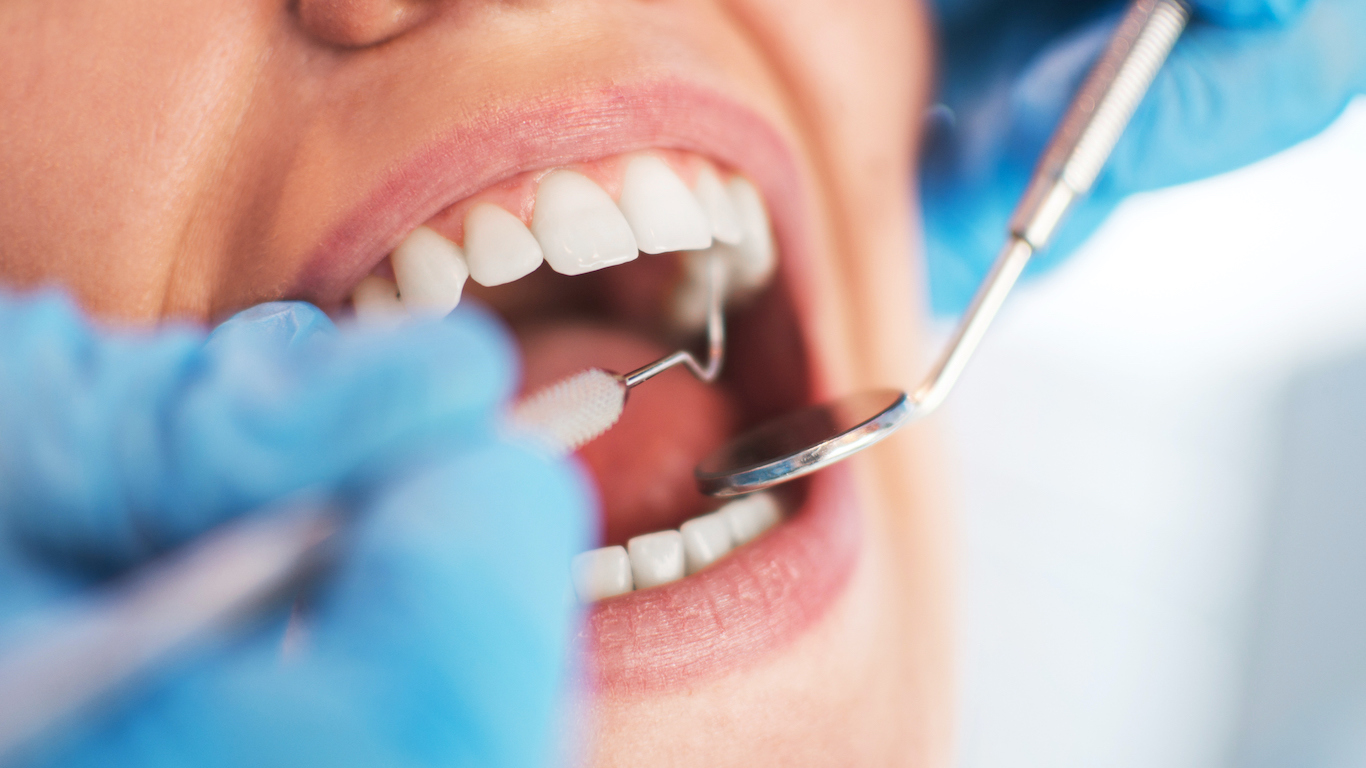
Open female mouth during oral checkup at the dentist. Selective focus.
Open female mouth during oral checkup at the dentist. Selective focus.
The human mouth is full of bacteria despite how many times a day you brush your teeth and floss. The body’s natural way to combat all that bacteria is saliva – and a lot of it. The mouth makes almost 1 liter of saliva each day. All that spit is a way to clean the mouth and keep the teeth and gums healthy.
11. Every tongue is different
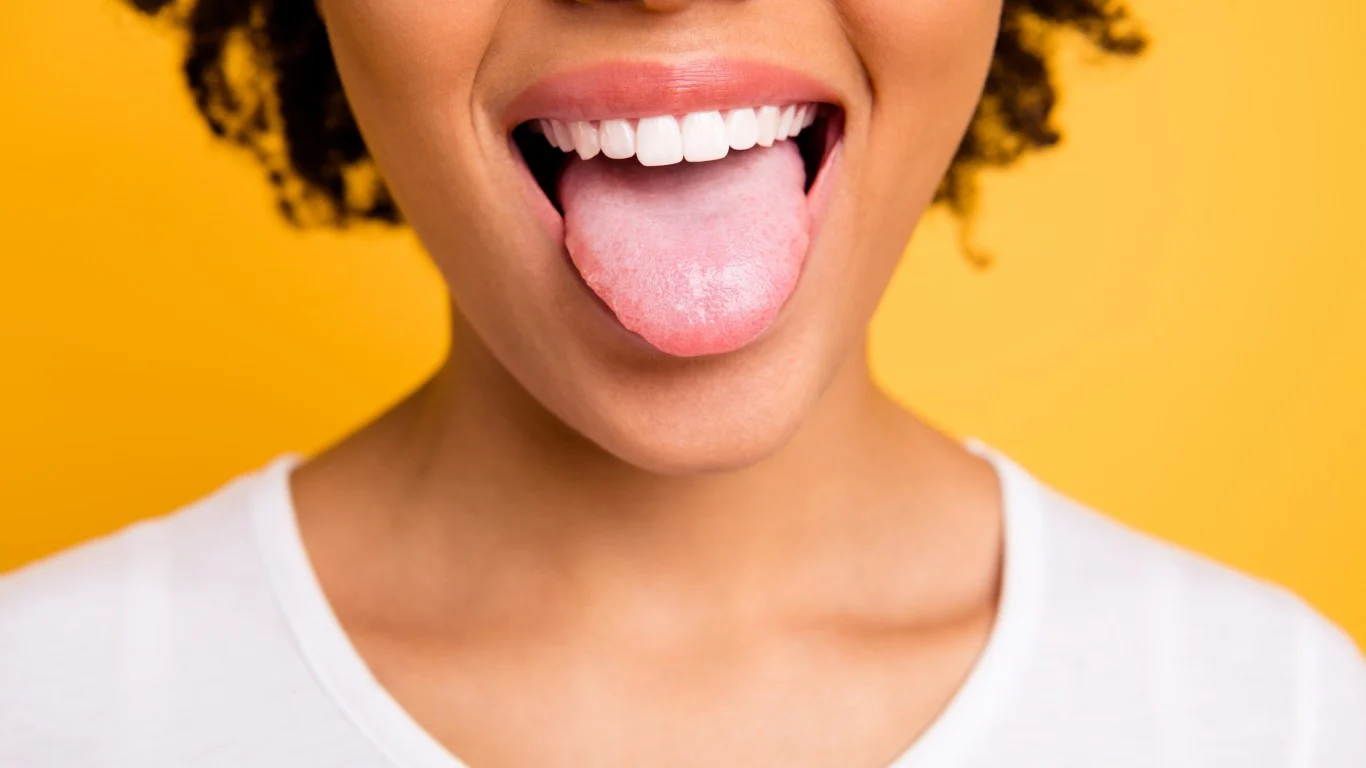
You probably already know that fingerprints are unique. But did you know that tongue prints are unique to every person, too? All the bumps and grooves on the human tongue are different for each person. This is a fairly recent discovery, and scientists are still researching how to use this information to identify individuals.
12. Household dust is mostly skin cells
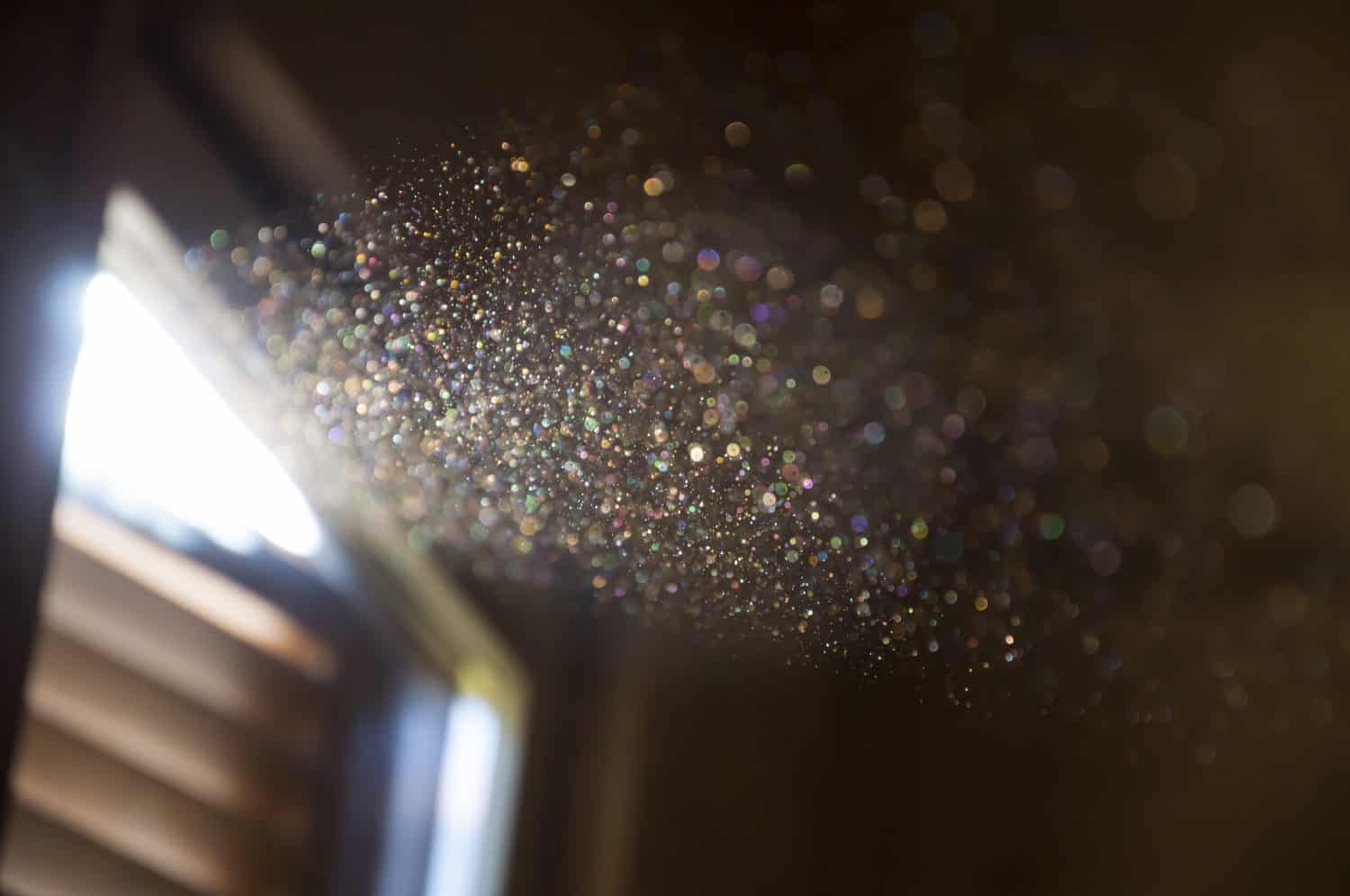
The human body sheds 8 pounds of dead skin cells each year. To break that down further, every minute, the average person sheds 30,000 dead skin cells. Those dead skin cells settle into literal dust. So keep that in mind when you are cleaning your house; you are dusting and vacuuming your own skin cells as well as the dead skin of everyone who lives there.
13. Bones regenerate
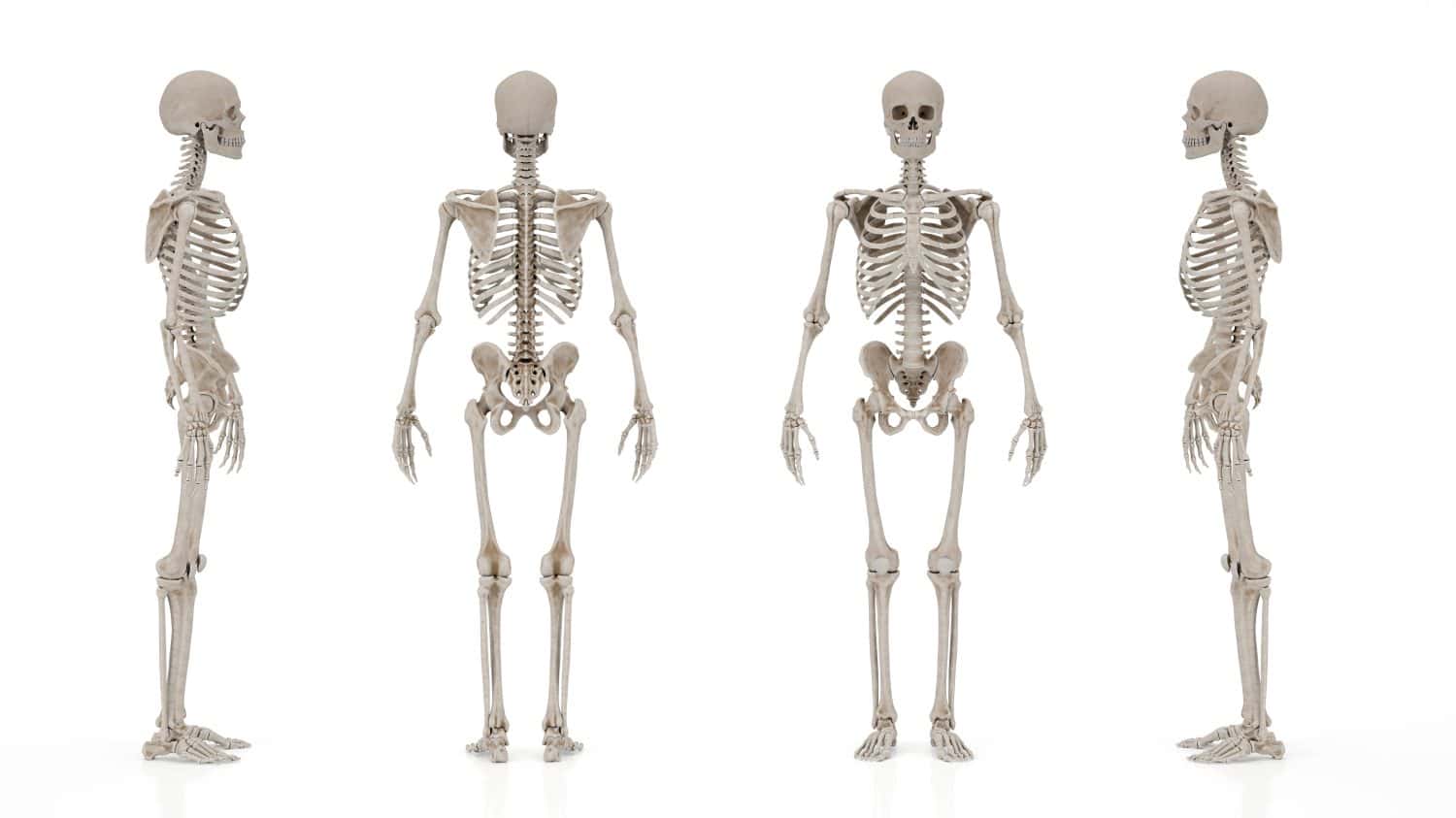
Every 10 years, you have a new skeleton. Bone is a living tissue and regenerates. Collagen is a big part of the process, so make sure to eat collagen-rich food like beef, chicken, bone broth, and salmon so your body makes a strong new skeleton.
14. The pinky finger is necessary for grip
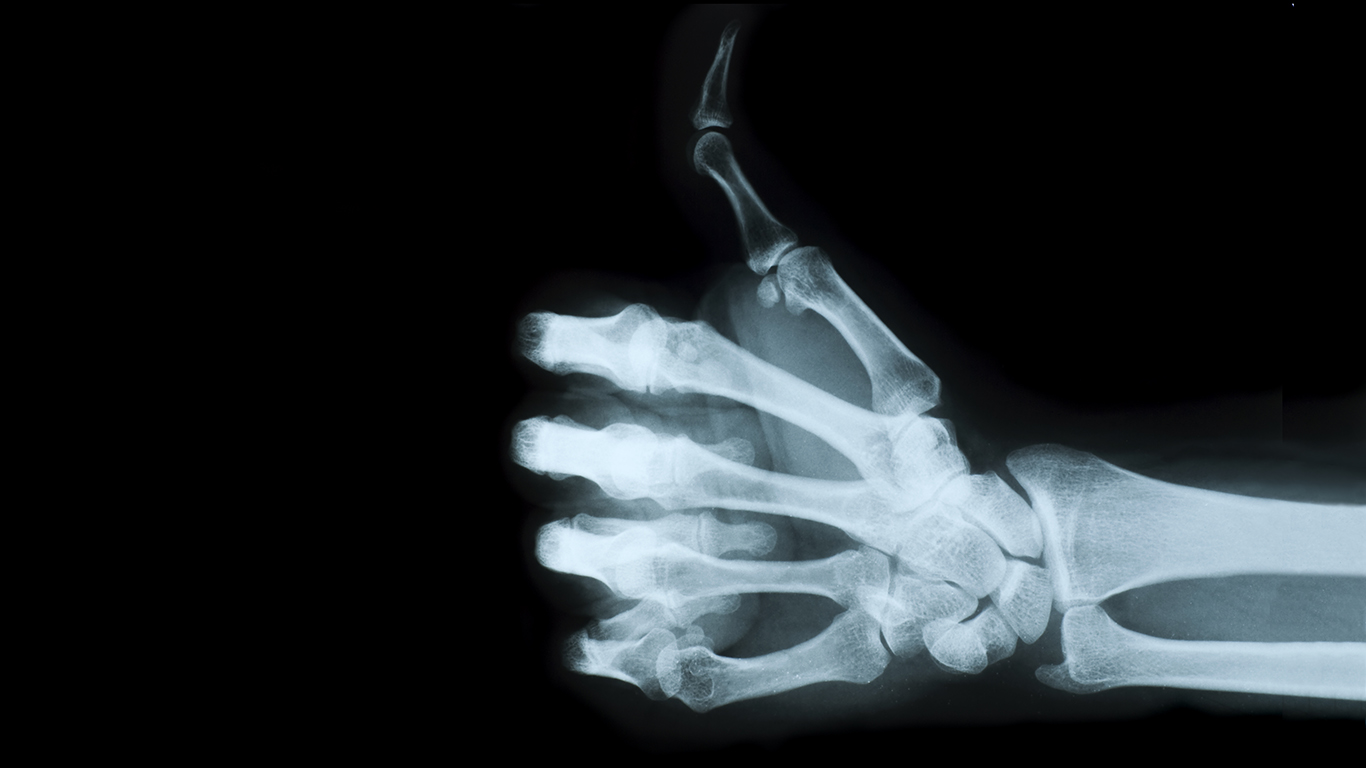
Inner side of International sign.
The pinky finger is smaller than the rest of the fingers in length and width, but the smaller size does not mean it isn’t important; without the pinky finger, the human hand would lose half its strength to grip and hold objects.
15. Ear wax is sweat
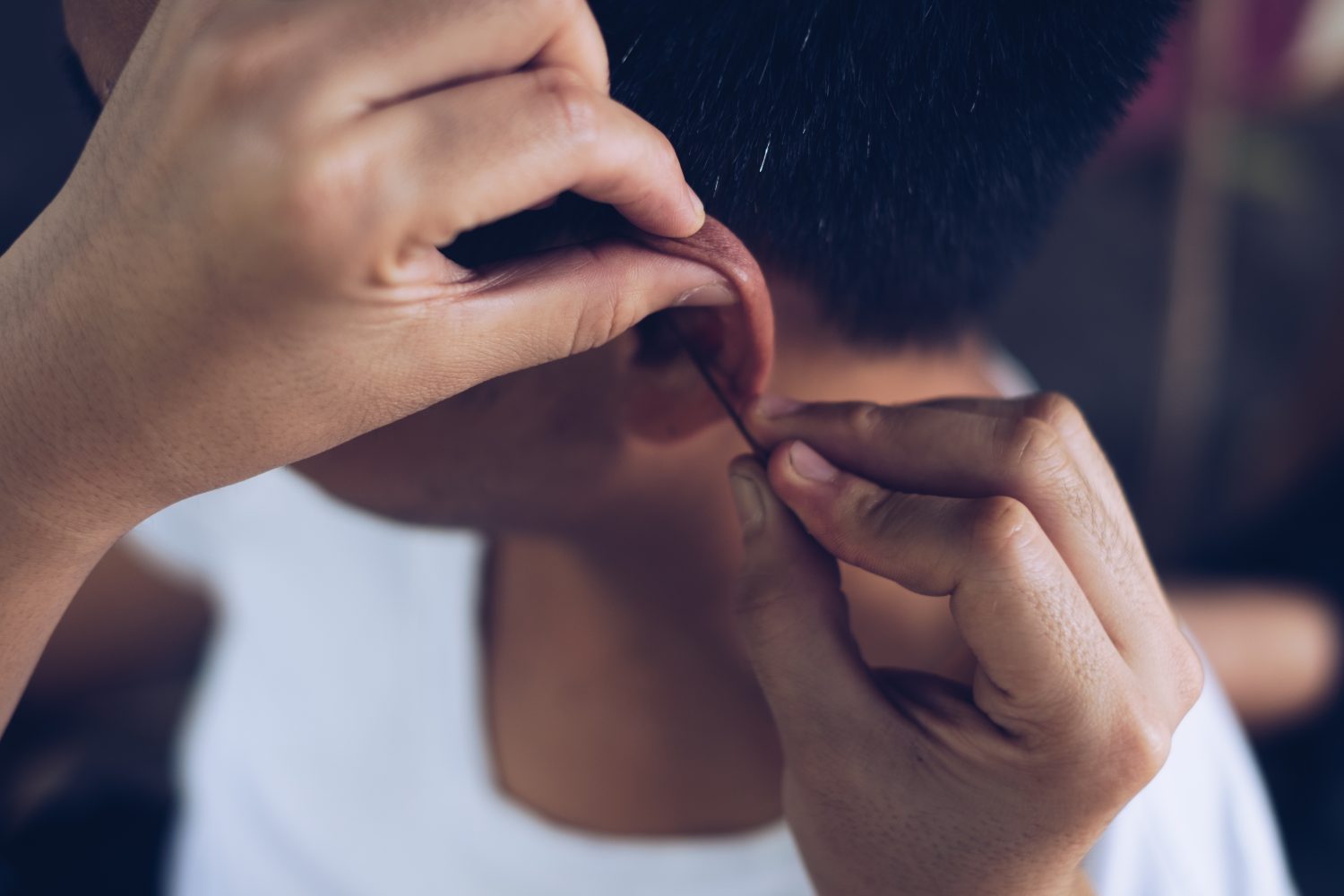
If you thought ear wax was gross before, it gets worse. Ear wax is how the ears sweat. The wax is like a self-cleaning machine when sweating and is designed to remove bacteria and particles. The sweat glands create ear wax as a barrier to the deeper, more delicate part of the ear. When ear wax builds up, it can cause hearing loss, so while this necessary sweat helps the ears, too much of it is dangerous. Experts recommend against using Q-Tips or other external objects to clean ear wax. Instead, they recommend using a mix of equal parts hydrogen peroxide and warm water in the ear.
16. The human nose creates an entire cup of mucus every day

Cold And Flu. Portrait Of Ill Woman Caught Cold, Feeling Sick And Sneezing In Paper Wipe. Closeup Of Beautiful Unhealthy Girl Covered In Blanket Wiping Nose. Healthcare Concept. High Resolution (Cold And Flu. Portrait Of Ill Woman Caught Cold, Feeling
Another gross, fun fact about the human body comes from the mucus membrane. The nose creates an entire cup of mucus every single day. When a person is sick, even more mucus is produced. While mucus may be gross, it’s an essential bodily fluid. It keeps dust, bacteria, and viruses from entering the body. It also acts as a lubricant for other internal bodily functions.
17. Yawning is contagious

Scientists don’t know exactly why people yawn, but every single person does. And if you see someone do it in person or in a photo, it triggers a yawn. Try it: Show a friend a picture of a person yawning and see how long it takes them to yawn.
18. The liver can regenerate itself
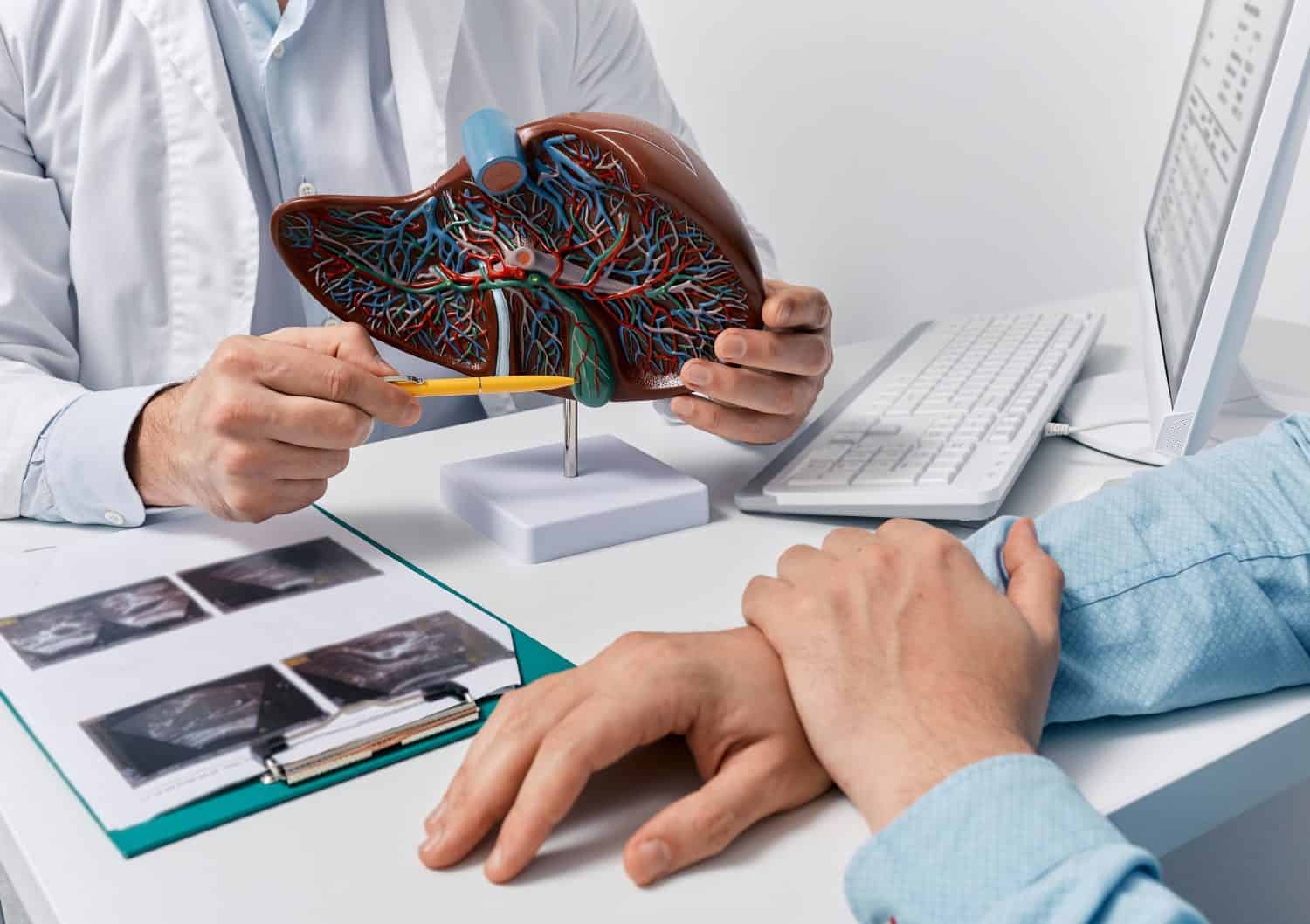
The liver is an amazing organ. It is the largest organ and is responsible for many important functions like cleaning and detoxifying blood; metabolizing protein, fat, and carbohydrates; aiding in digestion; storing glycogen; and overall regulating the body. However, one fact that makes it exceptional is that the liver can regenerate itself. If the liver is damaged from illness or lifestyle choices, it can heal itself.
19. Smiling takes less effort than a frown

It takes more muscles in the face to frown than to smile. But the exact number of muscles depends on the person and how big the smile is. Even a subtle smirk takes fewer muscles than a frown. Plus, smiling releases feel-good hormones like dopamine and serotonin, which relieve stress and make the body feel better. Even fake smiling releases endorphins, so if you can’t find a reason to smile, just fake it and still get the benefits of a smile.
20. Sweating is nature’s air conditioning
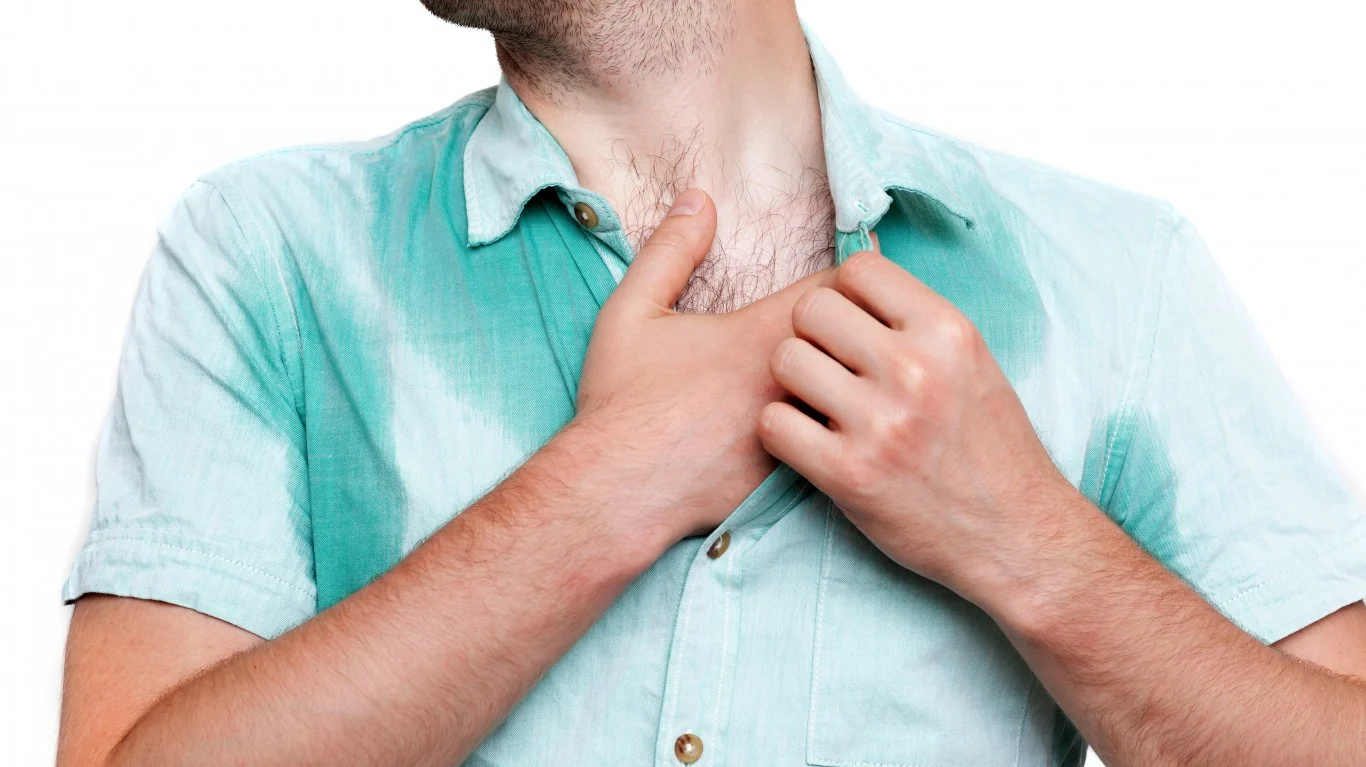
The human body has its own cooling system. When the body overheats from strenuous exercise or just a hot day, the body starts sweating. Sweating is caused by the body overheating, and the glands produce sweat to cool off. The sweat, which is mostly water, releases and then drips down, cooling the body. It is based on a principle in physics called “heat of evaporation.” It occurs naturally, but since being drenched in sweat isn’t comfortable, most people prefer artificial man-made air conditioning to excessive sweating. One way we can help the body sweat more and cool off is by eating spicy foods. Spicy hot foods like hot sauce and chili peppers raise the internal body temperature and make sweat. So, if you don’t have air conditioning, grab spicy noodles or dab some hot sauce on your food for an instant cooling effect. (Here’s a look at what can happen to your body when it’s really hot.)